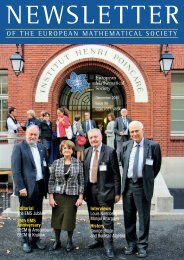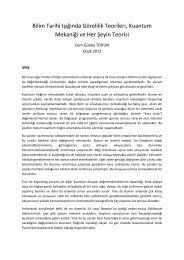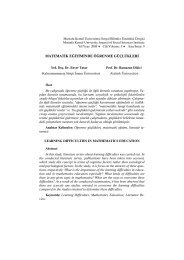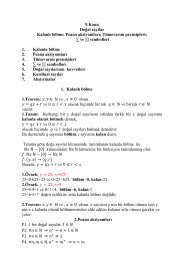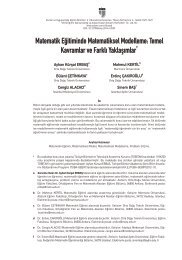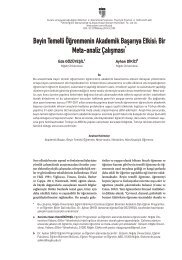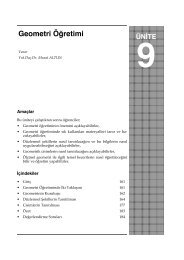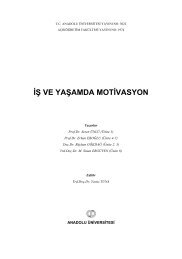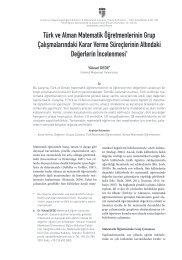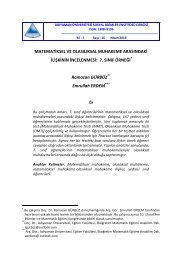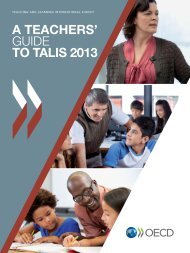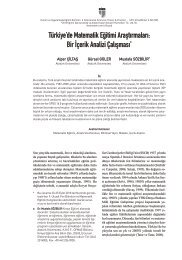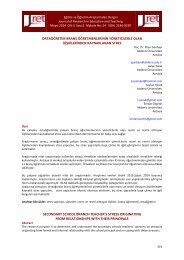Ufuk-U_niversitesi-SBE-Dergisi-S-ayı-5-kopya
Ufuk-U_niversitesi-SBE-Dergisi-S-ayı-5-kopya
Ufuk-U_niversitesi-SBE-Dergisi-S-ayı-5-kopya
You also want an ePaper? Increase the reach of your titles
YUMPU automatically turns print PDFs into web optimized ePapers that Google loves.
1.2. Definition of MultilingualismSimilar debates take place about the similarities and differences of bilingualism andmultilingualism as these concepts are very interrelated. Multilingualism is defined as theacquisition of three and more languages without having equal control of all domains in alltheir languages (Kemp, 2007). However, it needs to be clear that it does not involve a simpleaddition of new grammar and vocabulary, but a complex system connected to identity, statusand usage. In other words, multilingualism involves the knowledge of how to use thelanguages and not only the knowledge of the languages (Herdina & Jessner, 2002). Therefore,the assumption that “most of the findings obtained in bilingualism research can be generalizedto cover 2+n languages” (Herdina & Jessner, 2002, p.52) is inadmissible. Therefore, bilingualand multilingual individuals should not be considered as one and the same.Different from the bilinguals, in this study ‘multilinguals’ are accepted as individualswho have acquired at least 2 languages and consider themselves in the process of theacquisition of at least one additional language.A good number of studies can be found on the differences of cultural background orlanguage learning strategies of the individuals considered monolinguals and bilinguals;however, the differences of bilinguals and multilinguals have not been sufficiently examinedeven though multilinguals are thought to be different from bilinguals (Cenoz & Genesee,1998; Herdina & Jessner, 2002). One of the differences is the effect of having learned alanguage; in other words, the amount of language learning experience. Joaristi et al. (2009)stated that aside from the common aspects in acquiring a second or third language “ [...]learners of the third language have greater experience than learners of a second language[and] access to two different linguistic systems [...]” (p. 108). Additionally, multilinguals arethought to have a different knowledge of their first, second and additional languages, adifferent kind of language awareness and language processing (Herdina & Jessner, 2002)which leads to the assumption that the language acquisition of multilinguals differs in someway from first and second language acquisition (Cenoz & Genesee, 1998; Kemp, 2007).In the article of Cenoz and Gorter (2011) an illustration has been given on the relationbetween the three language acquisitions of a learner. It shows that learners who have acquiredtwo languages are limited to these two languages and their linguistic systems, whereaslearners with three languages have the chance to use all three languages and their systemswhich leads to a wider concept of the languages and consequently the world. Thus, it is59




